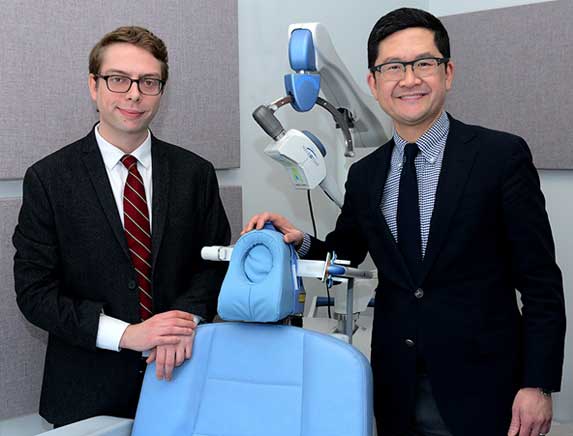Depression relapse occurs when depressive symptoms return after an individual has completed treatment for a depressive episode. The American Psychiatric Association tells us that at least 60% of people who have experienced one depressive episode will have another one at some point in their lives. (1) There’s no way to…
Published on March 5, 2020. Updated on January 24, 2024. Transcranial magnetic stimulation (TMS) is proven to relieve symptoms of depression in patients who don’t find symptom relief with other treatments like antidepressants and therapy (1,2). The majority of TMS patients experience no side effects, or mild effects such as…
What Causes Depression?
February 20, 2020
Depression is often due to a chemical imbalance in the brain, but there are a number of reasons why depression can develop. (1,2) According to the World Health Organization, more than 264 million people of all ages around the world are depressed. (3) While two people may experience the same…
What if TMS Doesn’t Work?
February 6, 2020
Ready to Try TMS? Contact Us Today! TMS is an FDA-approved treatment option for depression, and studies have shown it to be particularly effective for people who have tried multiple antidepressants with no success. In one study of treatment-resistant patients (patients for whom antidepressants did not work), 58% of…
dTMS Meaning: What Is Deep TMS Therapy?
January 23, 2020
Updated on September 11, 2024 dTMS, meaning “deep TMS therapy”, is a type of transcranial magnetic stimulation (TMS) therapy that is FDA-approved to treat patients diagnosed with major depressive disorder (MDD), major depressive disorder with anxiety (also known as anxious depression) and obsessive-compulsive disorder (OCD). Additionally, a more recent development…
Depression-Related Conditions
January 9, 2020
It’s common for people who have an anxiety disorder, ADHD, post-traumatic stress disorder, or a traumatic brain injury to also be suffering from depression. Rates of depression among people with these conditions are higher than rates of depression among the general public. When depression is diagnosed alongside another condition, it’s…
Benefits of TMS Over Antidepressants
December 12, 2019
Prescription antidepressants, in combination with talk therapy, are typically the first line of treatment prescribed for depression, but they’re also associated with several side effects that can deter patients from wanting to take them. For patients who do not like the idea of taking antidepressants because of the side effects,…
Depression Treatments That Don’t Have Side Effects
November 28, 2019
The most common way of treating depression is with prescription antidepressant medications. There are many different types of antidepressants—each type works in a unique way to relieve symptoms. Although antidepressants provide relief for many patients, they are also associated with unpleasant side effects, like: These side effects can become so…
How Long Until I See Results With Antidepressants?
November 14, 2019
Many people who are taking antidepressants for major depressive disorder (MDD) struggle to understand whether their medications are working. Should you feel happy 24 hours a day, seven days a week? Is it normal to still feel depressed even if you’ve been taking antidepressants for a certain period? Antidepressants don’t…
Does Depression Run in Families?
November 1, 2019
Many people who have suffered from clinical depression, or who have a loved one who suffers from depression, may have noticed that they’re not the only one in their family who has it. It’s very common for major depressive disorder (MDD) to run in families. Depression is caused by a…









